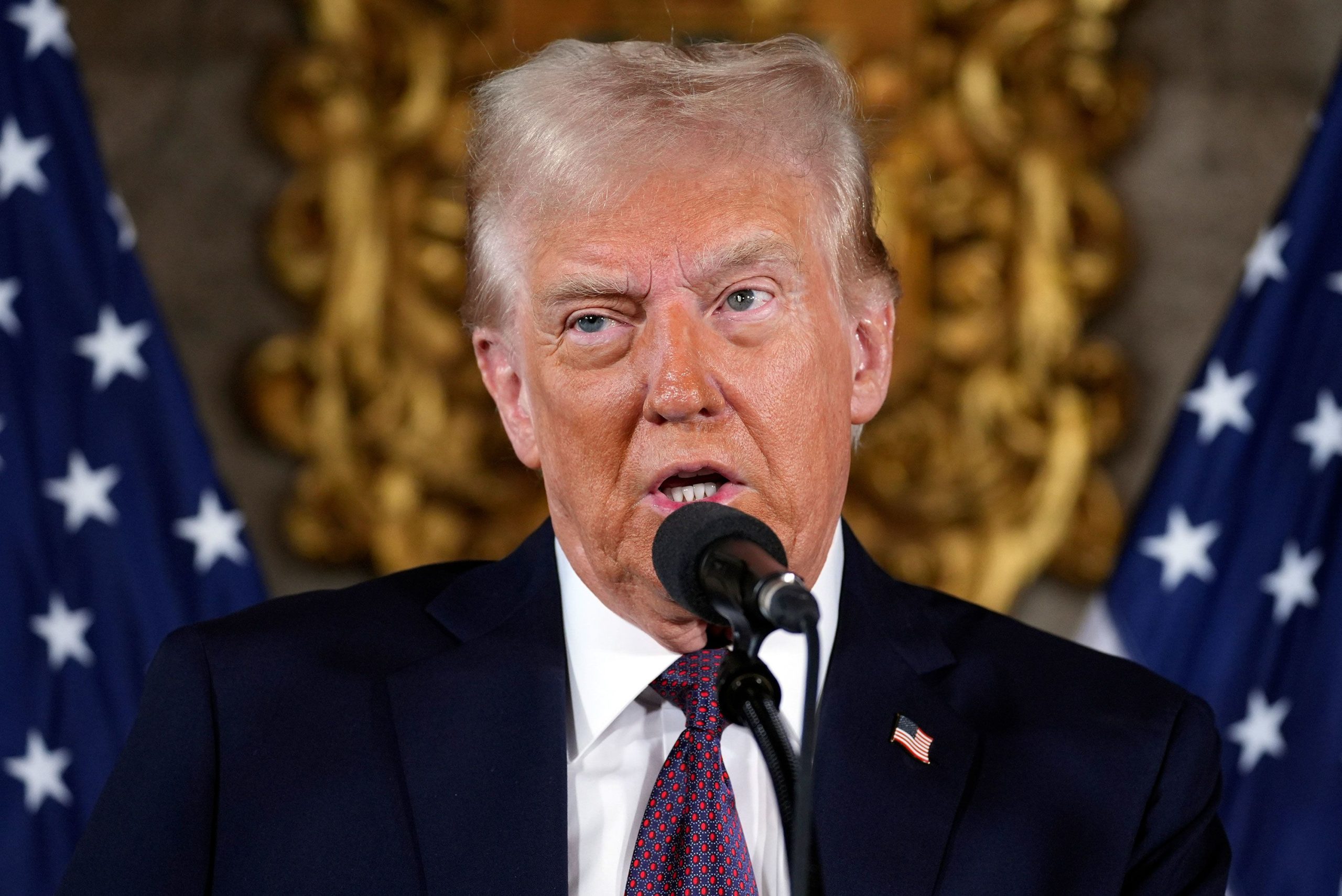US President-elect Donald Trump has reiterated his intention to take control of Greenland, the Arctic territory governed by Denmark.
Greenland, the largest island in the world, lies within the Arctic region. Despite its size, it is the least densely populated territory on Earth, home to around 56,000 people, most of whom are indigenous Inuit.
Approximately 80% of Greenland’s surface is covered by ice, with most residents living along the south-western coastline near the capital, Nuuk.
An autonomous Danish territory, Greenland hosts both Danish and US military bases. The economy largely depends on fishing, with significant subsidies from Denmark contributing about one-fifth of its GDP.
In recent years, Greenland’s natural resources, including rare earth minerals, uranium, and iron, have drawn increased global interest. These resources are expected to become more accessible as climate change melts portions of the island’s ice cover.
What is Greenland’s status?
Geographically part of North America, Greenland has been under Danish control for approximately 300 years, despite being nearly 3,000 km (1,860 miles) away from mainland Denmark.
For much of its history, Greenland was a colony, isolated and economically underdeveloped. In 1953, it became part of the Kingdom of Denmark, granting Greenlanders Danish citizenship.
A 1979 referendum on home rule transferred control over most domestic policies to Greenland, though Denmark retained authority over foreign affairs and defense.
Why does Greenland matter to the US?
The United States has long held strategic interests in Greenland. During World War II, following Nazi Germany’s occupation of Denmark, the US established military and radio stations across Greenland.
After the war, US forces remained, with the Pituffik Space Base (formerly Thule Air Base) continuing operations to this day. A 1951 defense agreement granted the US a significant role in Greenland’s defense, including the construction and maintenance of military installations.
“If Russia were to send missiles towards the US, the shortest route for nuclear weapons would be via the North Pole and Greenland,” said Marc Jacobsen, an associate professor at the Royal Danish Defence College. “That’s why the Pituffik Space Base is immensely important in defending the US.”
China and Russia have also expanded their Arctic military capabilities in recent years, according to a paper by the Arctic Institute. The paper urged the US to strengthen its Arctic presence to counter these rivals.
Danish Foreign Minister Lars Lokke Rasmussen acknowledged Washington’s interests, stating on Wednesday that Denmark was open to discussions with the US.
“We see a Russia that is arming itself. We see a China that is also starting to take an interest,” Rasmussen said.

Trump may also be intrigued by Greenland’s mining potential. “Today, of special interest are the rare earth minerals, which have not yet been mined but are in the southern part of Greenland,” Jacobsen added. “These are immensely important in all kinds of technologies, from cell phones to wind turbines.”
Does the US want full control of Greenland?
Trump has asserted that control of Greenland is crucial for US national and economic security.
While his rhetoric may seem unconventional, attempts to acquire Greenland have a historical precedent.
“The US has tried a few times to push the Danes out of Greenland and take it over as part of the US, or at least to have full security tutelage of Greenland,” said Lukas Wahden, author of 66° North, a newsletter on Arctic security.
In 1867, after purchasing Alaska from Russia, US Secretary of State William H. Seward attempted to negotiate Greenland’s purchase from Denmark but failed.
In 1946, the US offered $100 million (equivalent to $1.2 billion today) for Greenland, deeming it vital for national security. Denmark rejected the offer.
Trump also proposed buying Greenland during his first term in 2019, but both Denmark and the Greenlandic government dismissed the idea, with officials stating: “Greenland is not for sale.”
What do Greenlanders think?
Kuno Fencker, a member of Greenland’s parliament, the Inatsisartut, said on Wednesday that he did not view Trump’s comments as a threat.
Fencker, an advocate for Greenlandic independence, told the BBC that an independent Greenland could choose to collaborate with the US on defense matters.
However, when Trump initially proposed purchasing Greenland in 2019, many locals expressed strong opposition.
“This is a very dangerous idea,” said Dines Mikaelsen, a tour operator from Tasiilaq in east Greenland.
Aleqa Hammond, Greenland’s first female prime minister, also criticized the proposal. “He’s treating us like a good he can purchase,” she said. “He’s not even talking to Greenland—he’s talking to Denmark about buying Greenland.”
